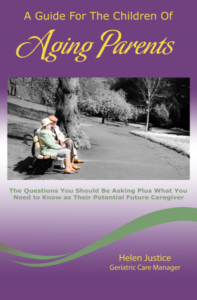
An Employer Assistance Program (EAP) for caregiving employees is a workplace benefit designed to support employees who are juggling caregiving responsibilities alongside their work responsibilities. EAPs can provide a range of resources and services to help caregiving employees manage their caregiving duties more effectively while maintaining their job performance and overall well-being.
Here are some ways an EAP can aid caregiving employees:
Counseling and Emotional Support
EAPs often offer confidential counseling services to help employees manage the emotional and psychological challenges of caregiving. Caregiving can be stressful, and having access to professional support can help employees cope with their feelings, reduce stress, and develop effective coping strategies.
Information and Referral Services
EAPs can provide caregiving employees with information and resources related to caregiving. This can include educational materials, online resources, and referrals to community organizations, support groups, and healthcare providers specializing in eldercare or other caregiving needs. Access to these resources can help employees make informed decisions and access appropriate support for their loved ones.
Work-Life Balance Assistance
EAPs can assist caregiving employees in achieving a better work-life balance. This can involve providing guidance on time management, prioritization, and setting boundaries. EAPs may also offer flexible work arrangements, such as telecommuting or flexible scheduling, to accommodate employees’ caregiving responsibilities without compromising their job performance.
Caregiver Support Groups
EAPs may organize or facilitate caregiver support groups within the workplace. These support groups allow caregiving employees to connect with others facing similar challenges, share experiences, exchange advice, and provide mutual support. Support groups can be valuable in reducing feelings of isolation and providing a sense of community.
Educational Programs and Workshops
EAPs can arrange educational programs and workshops on caregiving-related topics. These sessions may cover subjects such as managing stress, navigating healthcare systems, understanding legal and financial aspects of caregiving, and improving communication skills. By offering educational opportunities, EAPs empower caregiving employees with knowledge and skills to better manage their caregiving responsibilities.
Respite Care Services
Some EAPs may provide access to respite care services, allowing caregiving employees to take short breaks from their caregiving duties. Respite care involves temporary assistance in caring for the older adult, either at home or in a care facility. This allows caregivers to rest, take care of personal matters, or attend to work responsibilities with peace of mind.
Employee Assistance Hotline
EAPs often have dedicated hotlines or helplines that employees can call for immediate assistance and guidance. These hotlines provide a confidential and convenient way for caregiving employees to seek support, ask questions, or discuss any challenges they may be facing in balancing their caregiving and work responsibilities.
It’s important to note that the specific offerings of an EAP may vary depending on the employer and the EAP provider they work with. Employers interested in offering an EAP for caregiving employees should partner with a reputable EAP provider and ensure that the program aligns with the unique needs and preferences of their workforce.
Need advice on caring for your aging parents? Give us a call at 916-524-5151.



Stay Up To Date With AWGCM